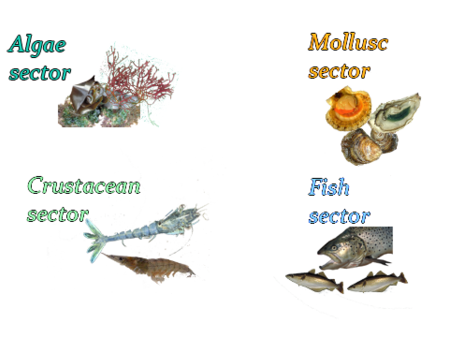Presentation
IFREMER has long been involved in aquacultural research and provides support for the different stakeholders to promote sustainable development and product quality. In realistic terms, this initiative involves "monitoring and optimization of aquaculture products."
Demand
Worldwide demand for aquatic products is sharply increasing.
- the Food and Agriculture Organization of the United Nations (FAO) predicts that per-capita consumption of these products should rise from the current 16 kg/year to about 20 kg/year in 2030
- the world population could exceed 8 billion people by that time
Total fish consumption would thus be around 150-160 million tons. It is estimated that constant maximum annual marine capture yield will amount to 100 million tons. "Aquaculture should thus be able to meet most of this increased demand."
Research goals
The overall aim is to acquire knowledge and develop technologies that will enable the development of an aquaculture sector capable of enduringly producing and maintaining a protein supply to complement that produced by other fisheries sectors.
The associated quality-related issues concern:
- Consumer health
- Improved monitoring of stocks
- Development of environment-friendly culture systems that are compatible with other uses of the resource
Key avenues of research:
- Sustainability of production systems
- Quality enhancement
Model species:
- Sea bass ( Dicentrarchus labrax)
- Oyster ( Crassostrea gigas, Ostrea edulis, Pinctada margaritifera)
- Penaeid shrimp ( Penaeus stylirostris)

